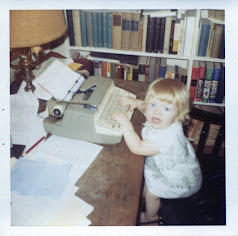 |
| Pittston Methodist Church, Pittston, PA - 2013 |
Because World War I was in process, it was easy to find jobs. So I became shipper at the Exeter mine of the L.V. Coal Co. located just south of West Pittston. As the 3-ton cars of coal came up from the mine, they were hoisted to the top of a 5-story building called a Breaker. There the contents were dumped into revolving crushers which reduced the larger mined pieces to the various smaller sizes which were needed in the commercial markets. Then the coal went through large tanks of water which removed, by a flotation process, the chucks of rock or slate. Finally, the now almost pure coal was run across a series of punched hole plates which sorted the coal into various sizes, - egg, chestnut, pea, buckwheat, etc. Each size was then loaded into 40 or 60 ton railroad hopper cars, for shipment via railroad to customers.
As Shipper, I sat in a glass enclosed office at a desk in front of which, within my reach, was the arm of a balance scale (similar to the small one on bathroom scales, with a sliding weight to move the balance). Outside, 6 feet below, was the scale platform crossed by railroad tracks which ran from above the Breaker to the RR classification yard beyond the scale. The loaded railroad cars moved by gravity and it was my job to read the name and number of the car (like C&O 13400) and its empty weight (printed on the car) and then weigh it as it passed slowly over the platform scale. Sometimes I missed, if the car happened to be going too fast, and this enraged the railroad conductor because he then had to have that car snaked out of those already in the yard and rerun over the scale.
During pauses in the line of cars coming from the Breaker, I phoned the sales office of the LV Coal Co in Wilkes-Barre and told them what I had already, -- so many cars of Pea, so many Chestnut, etc. soon they would phone back to give me instructions as to whom and where each car was to be shipped. Then to guarantee correct information I had to spell back to them the names and destinations, numerically. For example, Joe Jones, Port Jervis, NY would be J the 10th (letter of the alphabet), O the 15th, E the 5th and so forth. With practice this became easy and I could spout it back to them fast. Following this I would record the complete information in the log book, with a carbon to Wilkes-Barre, and prepare a Way-Bill for each car and hand them to the RR Conductor.
I don't remember exactly how long I held that job but when the position of Supply Clerk became vacated by an older man who left for war, I was offered the promotion and accepted it. Thus I became the youngest Supply Clerk in the whole Lehigh Valley Coal Co. This involved ordering, receiving and disbursing all kinds of materials needed by the miners and other workers and it included dynamite, blasting powder, and percussion caps.
Meanwhile, my brother-in-law Will Ahlers and my brother Charles left the Lehigh Valley Coal Co to accept similar positions with the Racket Brook Coal Co in Carbondale at the northern end of the anthracite region. Soon thereafter my mother passed away and I was left alone at age 18 and wen to live with brother Fred and later my sister Lillian's family, both in West Pittston. Then I too was offered and accepted a position at Racket Brook and moved to Carbondale to live with the Ahlers. Following the annual coal miners' strike (John L. Lewis called a strike every Labor Day) during which I was told I could either go on leave without pay or become a night watchman with pay, I accepted the latter, was handed a 45 revolver and was told to do night guard duty, 7 pm to 7 am. But I soon tired of this, resigned and took a position as a cost accountant with The Cross Engineering Co in Carbondale.
During this time, I continued to be active in the Methodist Church, especially among the young people in the Epworth League and had frequent contact with the pastor's family, especially his son, Charles Olmstead, who was then a Sophomore at Wyoming Seminary, a preparatory school in Kingston, Pa. founded in 1844. This opened my eyes to the desirability and possibility of more formal education although my total assets at that time were $90 invested in Southern Pacific stock and a cut-down Ford with no windshield or mudguards. Nevertheless, I went down to Wyoming in the summer of 1922 and was interviewed by President Levi Sprague. When I disclosed my assets Dr. Sprague said that the $90 would not be sufficient for the tuition, room and board bills and that all jobs available to students had already been spoken for for the coming year.
What happens next? Come back next week to find out more.




No comments:
Post a Comment
If you don't wish to share your email address, please comment anonymously. Thank you.